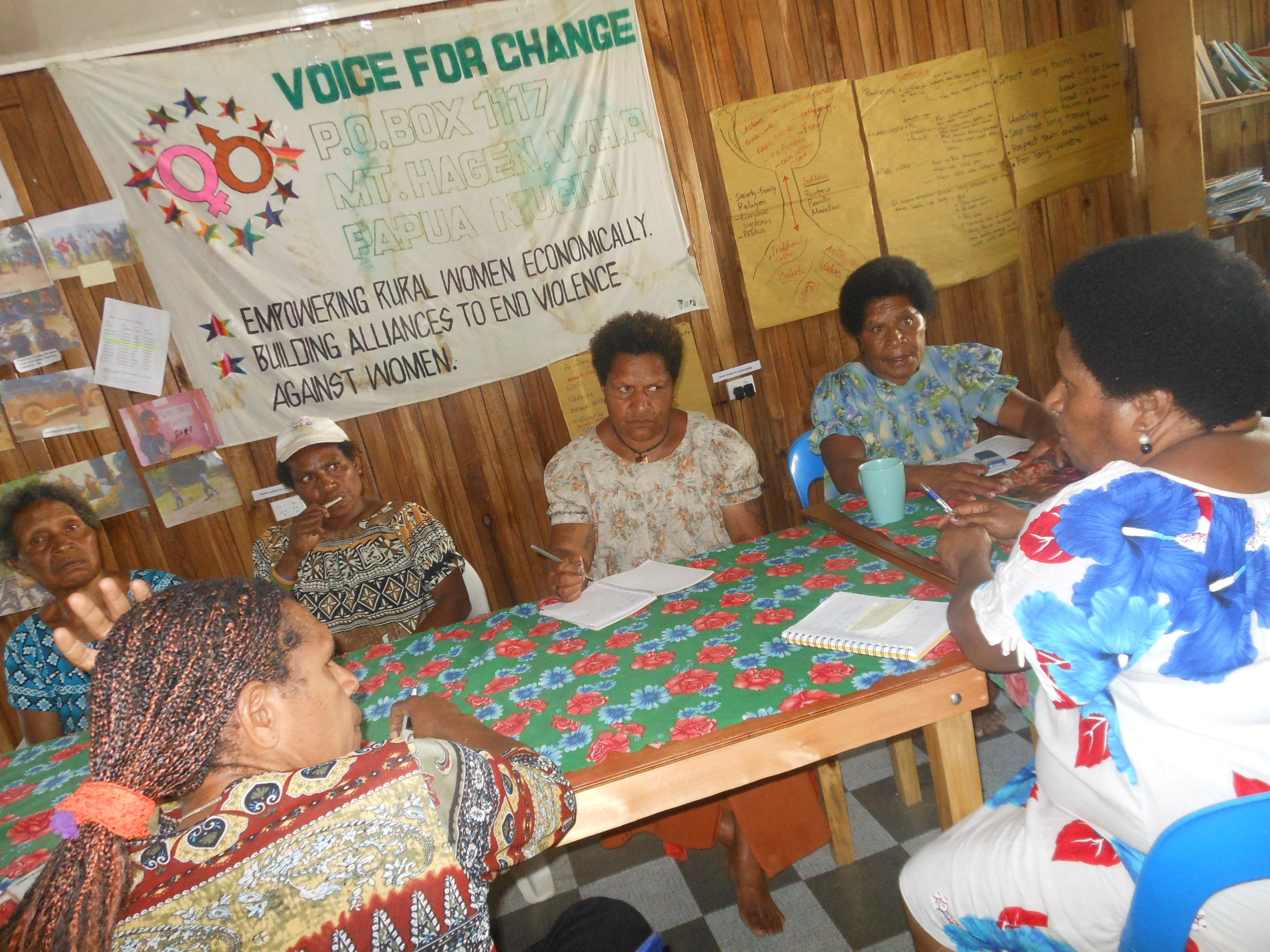Gender Based Violence Response and Prevention Programs
- GBV Response
- Community engagement and awareness raising
- Working with local government
- Building young women’s leadership

GBV Response

Community engagement and awareness raising

Working with local government
Building young women’s leadership
From high rates of gender-based violence, to entrenched patriarchal norms and community attitudes that priorities the voices of mature community members over youth, young women in Jiwaka face a range of challenges that restrict their ability to participate in decision-making spaces and leadership roles. Voice for Change is a women’s human rights organization from Jiwaka Province of Papua New Guinea, working towards building a society that promotes and protects women’s human rights and equal participation. Voice for Change has four strategic programs:Ending all forms of VAW and girls
- Human Rights for All
- Equal Participation
- Organization Sustainability
One of the project’s strategies is to engage young women and girls in the work of Voice for Change to build the next generation of women leaders and reach out to young women and girls in Jiwaka Province. In 2016, Voice for Change conducted a needs assessment with young women from Jiwaka, and developed a two-year program to build the skills, capacity and network of young women to empower young women from Jiwaka Province to become leaders to advocate, educate, raise awareness, influence change and lead by example to promote greater gender equality and women’s rights. The Theory of Change under the program has the goal to empower young women from Jiwaka Province to become leaders to advocate, educate, raise awareness, influence change and lead by example to promote greater gender equality and women’s rights. The outcomes are for the:
- Young women feel empowered and confident to take action, influence and lead by example
- Young women feel supported, respected and motivated to exercise their leadership.
The pilot of the Young Women’s Empowerment and Mentoring Program was implemented in 2017-2018, with 16 young women leaders graduating from the program in 2018. These participants underwent training program with a series of targeted modules designed to increase their understanding of gender equality and women’s human rights, develop their confidence and skills for leadership, and their ability to advocate for women’s human rights within their communities. The young women leaders were paired with mentors to support their leadership journey, and their parents and guardians participated in gender equality and human rights training to enable them to support the young women to implement what they were learning. In 2018, these young women leaders also led the implementation of 16 Days of Activism awareness raising and advocacy initiatives in 13 communities, reaching over 7000 women, men and children. Graduates from the pilot program have communicated experiencing changes within their families and communities. They have reported gaining respect from the family and community as a young woman leader and being more confident in making decisions both their personal lives and within their families. The program is now looking forward for the 2nd phase of it with 38 young women from all over Jiwaka province have been registered as participants including young women, single mothers, divorced and widowed. (Photo: The 16 Pioneer Graduates of the Young Women Leadership Program)